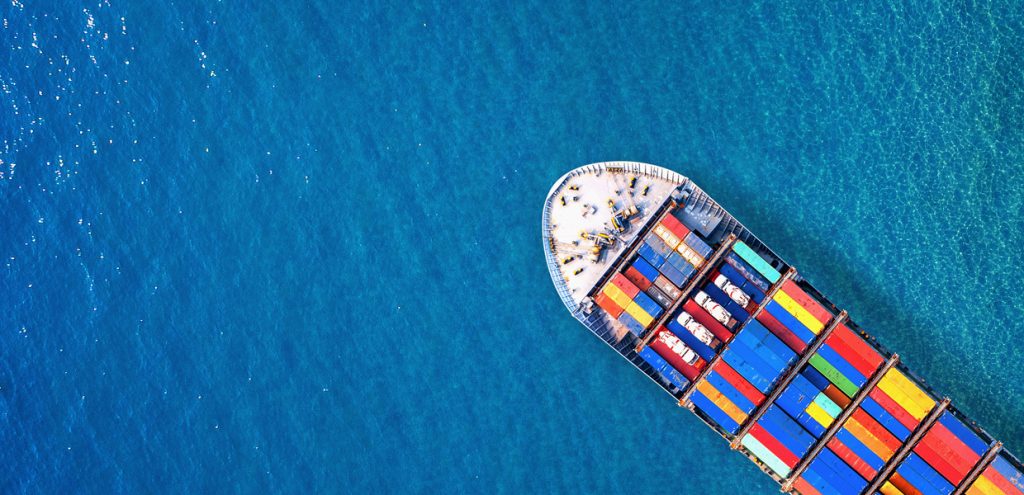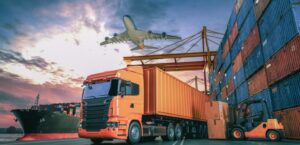The latest trends in technology, digitalisation and automation are being integrated into a variety of industries at a rapid rate. Industry 4.0 (as it is being called) is transforming and reshaping the way we do business in the 21st Century. This is especially true in the maritime sector, where production process automation, cloud-based network systems and cyber-physical interfacing are offering endless advantages.
Big data will create opportunities for those in the maritime sector and ocean freight industry to optimise their shipping practices. From route management and warehouse storage to shipment tracking and remote access, big data is the foundation for the online tools optimising so many aspects of the production process.
So, what does big data really do for those in the ocean freight industry? Let us take a look.
The Future Potential of Big Data for Ocean Freight
Automated delivery vehicles are already becoming part of international shipping. Remotely accessed or AI-driven vehicles are just the beginning. Remotely piloted ocean freighters are the next big step in the maritime sector and offer the opportunity for safer, more affordable and more consistent ocean transportation methods.
As digitalisation and automation become a more significant part of our modern world, it will continue to improve and refine various aspects of the ocean freight industry. These advancements are making pipedreams of the past more possible than ever. Networking subsystems, energy-efficient onboard operations, remote access to ship controls and online data collection and analysis are just some of the ways that ocean transportation is evolving.
Making the Maritime Sector More Cost Effective and Efficient
The reality of working in the international shipping industry is to battle consistently growing demands, regulations, expectations and costs. There is too much tonnage being shipped across the ocean to maintain consistent costs of productions for ocean freight companies. The only option is to evolve and adapt their procedures and methods used to ship cargo by sea.
Reducing costs and creating more efficient transportation processes are the best way for international shipping companies to remain profitable. While increasing demand forces the price of shipping goods down and raises costs for service providers, big data becomes a critical component for cutting production costs and improving efficiency.
Automated systems, smart technologies and cloud-based tools are capable of replacing work previously done by humans. Remote control capabilities mean that cargo ships can transport goods with less human power required and experts on land to monitor ship progress. By reducing the number of crew members needed and automating shipping processes, ocean freight transporters can start to see growing profits again.
The Impacts of Route Optimisation for International Shipping
Improving the data systems and digital tools that run our international shipping networks will allow ocean freighters to reduce their fuel consumption, optimise their routes and transport more efficiently. For example, tracking weather patterns and finding low-pressure areas in the ocean can help cargo ships save fuel and ensure crew and cargo safety onboard the ship.
Route optimisation is not only about choosing the best ways to navigate the open ocean. One of the most effective means of reducing fuel consumption and improving reliability is to leave from and arrive in ports as promptly as possible. The closer your cargo ship keeps to their assigned arrival or departure schedule, the sooner and more easily that carrier can move on to logistics.
IT Security for New Digital Systems
As we are learning more and more, IT security is critical to the safety and effectiveness of any digital infrastructures your company has incorporated. Beyond this, the actual asset value of freight ships and their cargo are in the millions of Rands. The consumer, company, resource and environmental losses of failed voyage can be devastating.
The severe consequences of shipping accidents, incomplete cargo deliveries and route errors are enough to concern any freight company, especially as new digital systems are being integrated into their operations all the time. To tackle the emerging cybersecurity threats posed by hackers and online criminals, big data is being used to create more robust cybersecurity infrastructure and digital protections.
The Best of Big Data
The truth is that we have only begun to scratch the surface of what is possible thanks to big data and its subsequent digital tools and services. As our logistics, management, production, manufacturing, automation and GPS tracking systems continue to get bigger, smarter and better, we will continue to see incredible advancements in the ocean freight and international shipping industry.
M6T are a trusted freight forwarding and logistics partner for South African businesses and traders. We have a global network that spans across the international shipping industry and helps us provide world-class logistics services to our clients. Contact M6T at our Johannesburg or Durban branch today for all of your freight forwarding and logistics needs.



